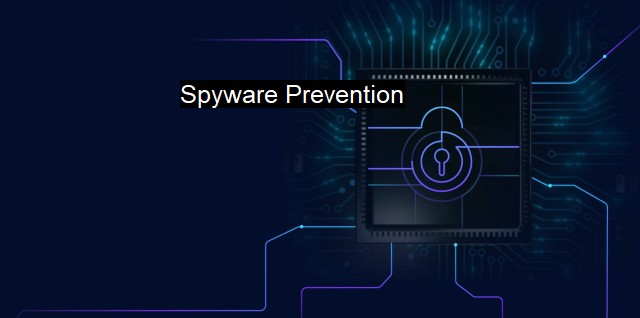What is Spyware Prevention?
Protecting Your Personal Information: Effective Strategies for Spyware Prevention
Spyware, as the name suggests, is a type of malicious software designed to invade the privacy and personal information of computer users. the prevention of spyway is often a primal focus, considering the severe harm it could deliver. Approximately, spyware interferes with the smooth operation of a computer, damages a computer system, or often leaks critical personal or professional information to unauthorized users or hackers. Therefore, understanding the concept of spyware prevention is not only a necessity but also a responsibility of digital citizens in today's tech-oriented world.In the simplest terms, spyware prevention refers to the set of measures taken to protect and prevent computers and digital devices from spyware. It is a strategy or set of procedures that reduces the chances of your computer system getting infected with spyware. This involves both technical practices like installing antivirus software and behavioral changes like avoiding certain types of online activities.
Antivirus software plays a significant part in spyware prevention. Most antivirus programs today are designed with embedded anti-spyware tools or, at the least, have the ability to stop the entrance and establishment of most types of spyware. These antivirus programs function through real-time scanning of all data entering a computer system, thereby detect and quarantine any potential spyware before they pose harm.
Antispyware tools have advanced algorithms that have pattern recognition ability. This function permits the tools to spot the signature of spyware entities that have previously been flagged hazardous. Yet, the constantly changing landscape of cybersecurity threats means that new spyware entities keep evolving. Therefore, it is highly recommended to keep antivirus software and other protection systems updated to match the pace with the rising advanced threats.
Effective spyware prevention extends beyond just the use of antivirus software. Users need to maintain good online hygiene by avoiding risky or untrustworthy websites and emails. Spyware often disguises itself in forms of spam emails, risky downloads, or unreliable websites. It is crucial to double-check all URLs, download sources, and email authenticity.
Installing software only from trusted sources, using secure SSL encryptions (HTTPS instead of HTTP), changing management or database access credentials often, and ensuring the computer's.configurations are secured and hard to override add to the efficacy of spyware prevention.
Sometimes, spyware can exploit known vulnerabilities in a computer’s operating system or software. A vital step to spyware prevention, hence, is to thoroughly patch or update systems and software regularly. Routine updates not only enhance the performance of system resources but also mend known vulnerabilities, which further reduce the chances of a spyware assault.
Firewalls are another useful tool to prevent spyware. A firewall works as a shielding mechanism blocking unauthorized access to a computer system while at the same time permitting authorized communication to proceed. Firewalls, when properly configured, can profoundly disallow harmful entities, including spyware, from reaching the computer system.
Education on cybersecurity is also a necessary component of spyware prevention. The development of digital literacy and understanding of the potential threats, their origins, and prevention strategies can greatly aid in minimizing the risk of spyware.
Spyware prevention entails a multi-faceted approach that combines robust technological tools like antivirus software, regular updates and patches, efficient use of firewalls, along with cautious behavior. In the current cyber age, it underpins important objectives such as safeguarding private and sensitive data, ensuring smoother work operation, protecting financial transactions, and much more. Therefore, comprehension and diligence application of spyware prevention measures are essential for all computer users.

Spyware Prevention FAQs
What is spyware prevention?
Spyware prevention refers to the actions taken to prevent the installation and activity of spyware on a computer system. This can include the use of antivirus software, firewalls, and other security measures.What types of spyware can be prevented by antivirus software?
Antivirus software can prevent a variety of spyware types, including keyloggers, adware, and Trojans. It may also be able to detect and remove other types of malware, like viruses and worms.How can I prevent spyware from infecting my computer in the first place?
One of the most effective ways to prevent spyware infections is to be vigilant when downloading and installing software. You should also keep your operating system and applications up to date, use a reputable antivirus program, and avoid clicking on suspicious links or downloading attachments from unknown sources.What should I do if I suspect my computer is infected with spyware?
If you suspect that your computer is infected with spyware, you should run a full scan with your antivirus software. If the software detects any spyware, it should provide instructions for removing it. You may also want to seek assistance from a cybersecurity professional if you are unsure how to remove the spyware or if you believe that your personal information has been compromised.| | A | | | B | | | C | | | D | | | E | | | F | | | G | | | H | | | I | | | J | | | K | | | L | | | M | |
| | N | | | O | | | P | | | Q | | | R | | | S | | | T | | | U | | | V | | | W | | | X | | | Y | | | Z | |
| | 1 | | | 2 | | | 3 | | | 4 | | | 7 | | | 8 | | |||||||